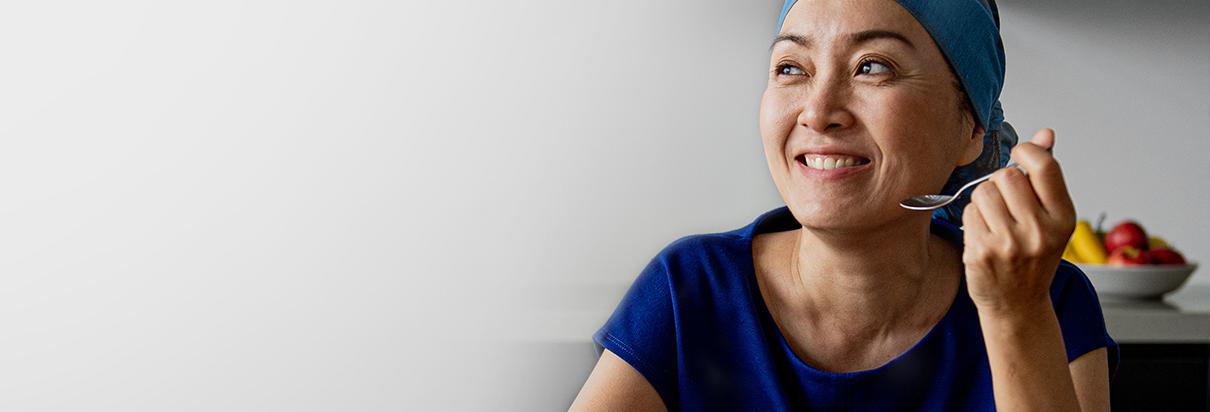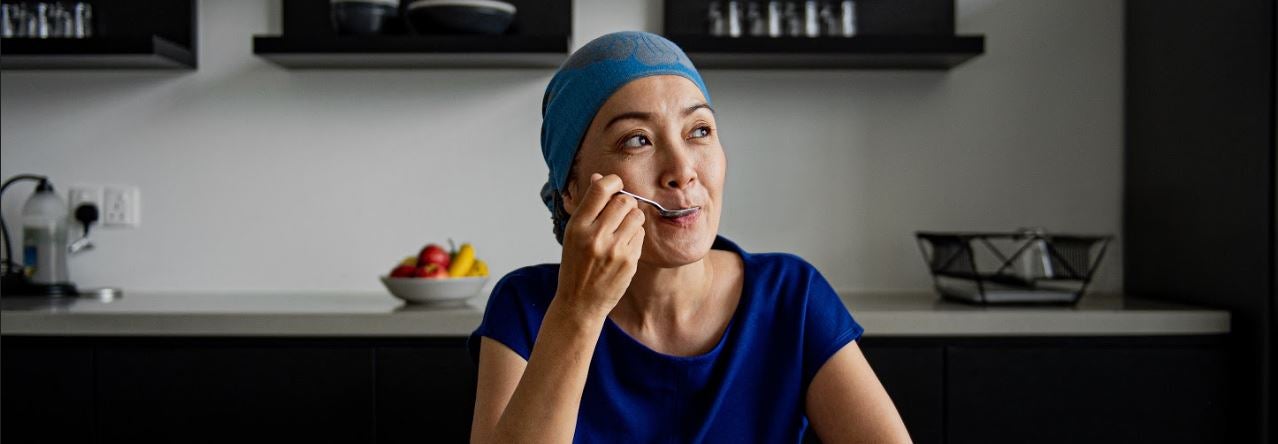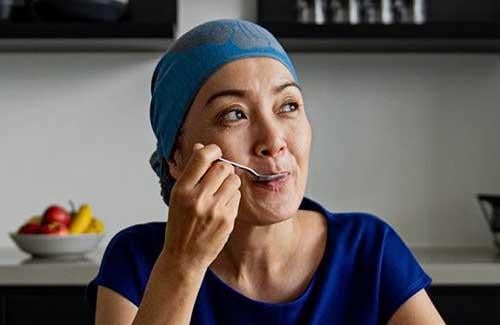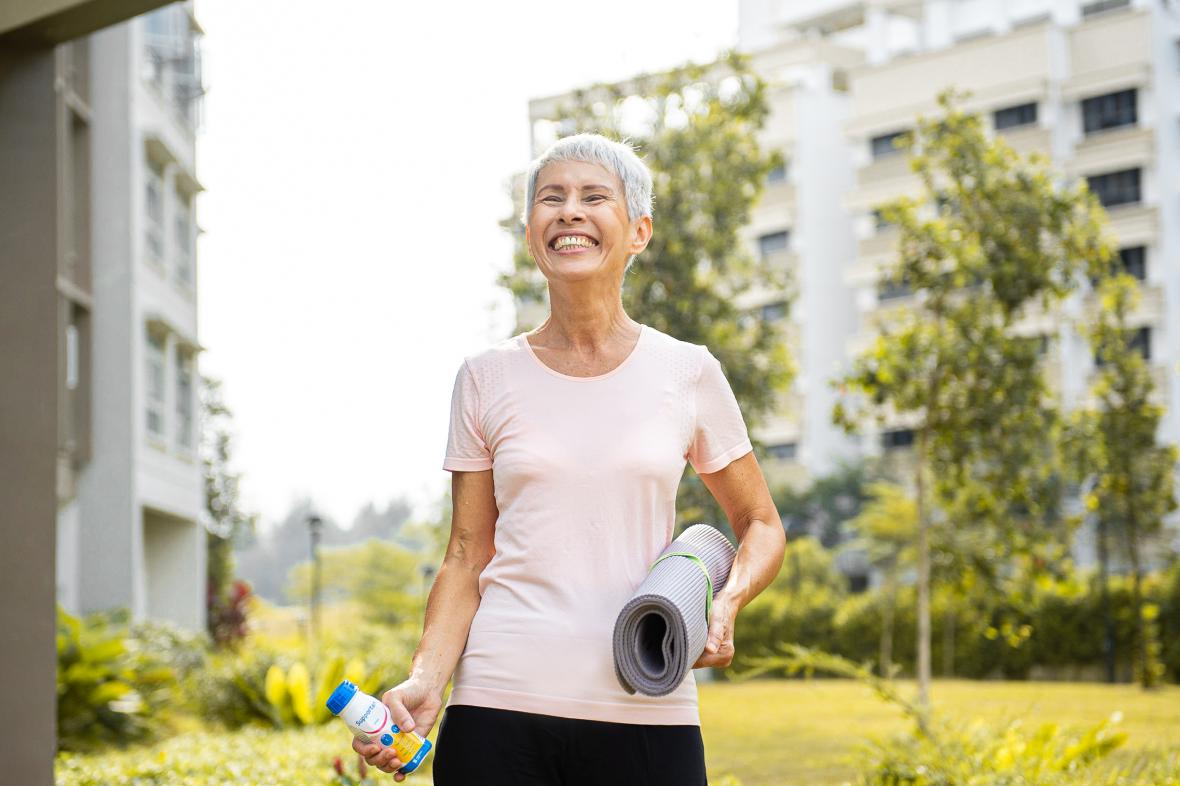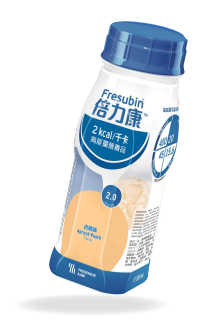To alleviate her problem, you can try smaller volume but higher frequency diet. If she does not like red meat, you can try poultry, fish, egg and other soya product for replacement.
If she feels bitter, you can add sweet sauce, seafood sauce or peanut butter or drink fruit juice and honey to cover up the bitter taste. If she finds food tasteless, you can add more salt, garlic, sugar, cheese, ham, celery, onion, pickled vegetable or herbs to strengthen the taste. Besides, meat can be served with pineapple or peach.
If she tastes metal, you can use plastic utensils to reduce bitter taste. Do not use canned drink or metal cup. Food with sour taste can help reduce the metal taste e.g. fruit juice. Lastly, rinse the mouth before eating can also improve the situation.
